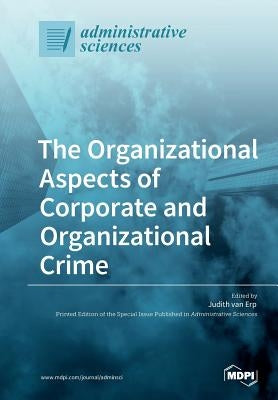Before you leave...
Take 20% off your first order
20% off
Enter the code below at checkout to get 20% off your first order
Discover summer reading lists for all ages & interests!
Find Your Next Read

Corporate crimes seem endemic to modern society. The newspapers are filled
on a daily basis with examples of financial manipulation, accounting fraud, food
fraud, cartels, bribery, toxic spills and environmental harms, corporate human
rights violations, insider trading, privacy violations, discrimination, corporate
manslaughter or violence, and, recently, software manipulation. Clearly, the
problem of corporate crime transcends the micro level of the individual 'rotten
apple' although corporate crimes are ultimately committed by individual
members of an organization, they have more structural roots, as the enabling
and justifying organizational context in which they take place plays a defining
role. Organizations provide individuals with positions, incentives, networks, rules,
routines, perceptions and beliefs, that structure the opportunities for crime. Thus,
organizational factors can explain how misconduct in organizations is defined,
perceived, normalized, organized, and facilitated on the one hand, and controlled
and prevented on the other hand.
Organization studies have a long tradition of studying misconduct and deviance in
organizational contexts. This Special Issue of Administrative Sciences focuses on
the organizational and administrative aspects of a broad spectrum of corporate
and organizational crimes.
Thanks for subscribing!
This email has been registered!
Take 20% off your first order
Enter the code below at checkout to get 20% off your first order